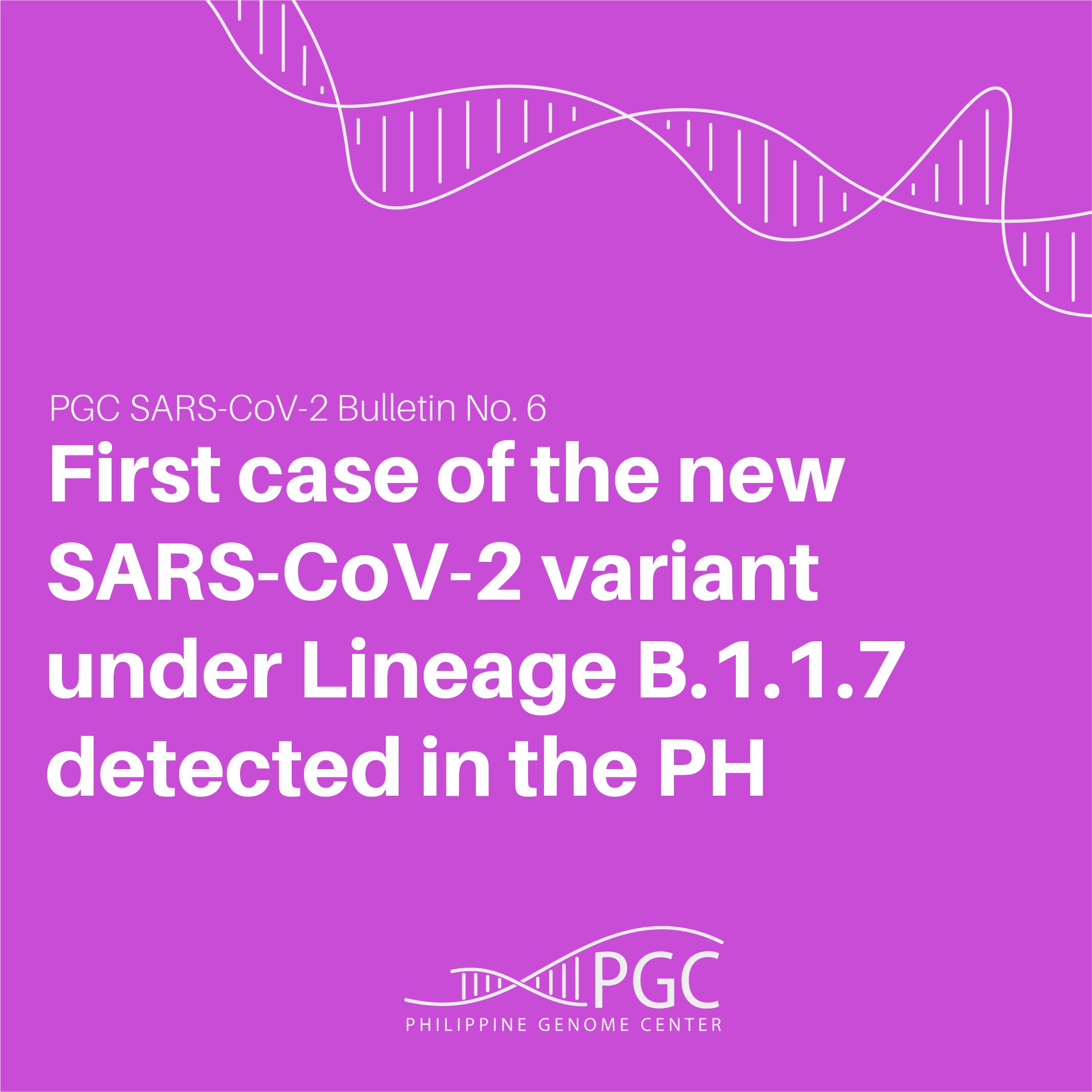Through the biosurveillance efforts of the UP – Philippine Genome Center (PGC), in coordination with the Department of Health (DOH) – Epidemiology Bureau and the Inter-Agency Task Force (IATF) Task Force on COVID-19 Variants, we report the first confirmed case of the SARS-CoV-2 B.1.1.7 lineage, more commonly known as the UK variant, in the Philippines. An announcement of this finding can be found in an official DOH press release dated January 13, 2021.
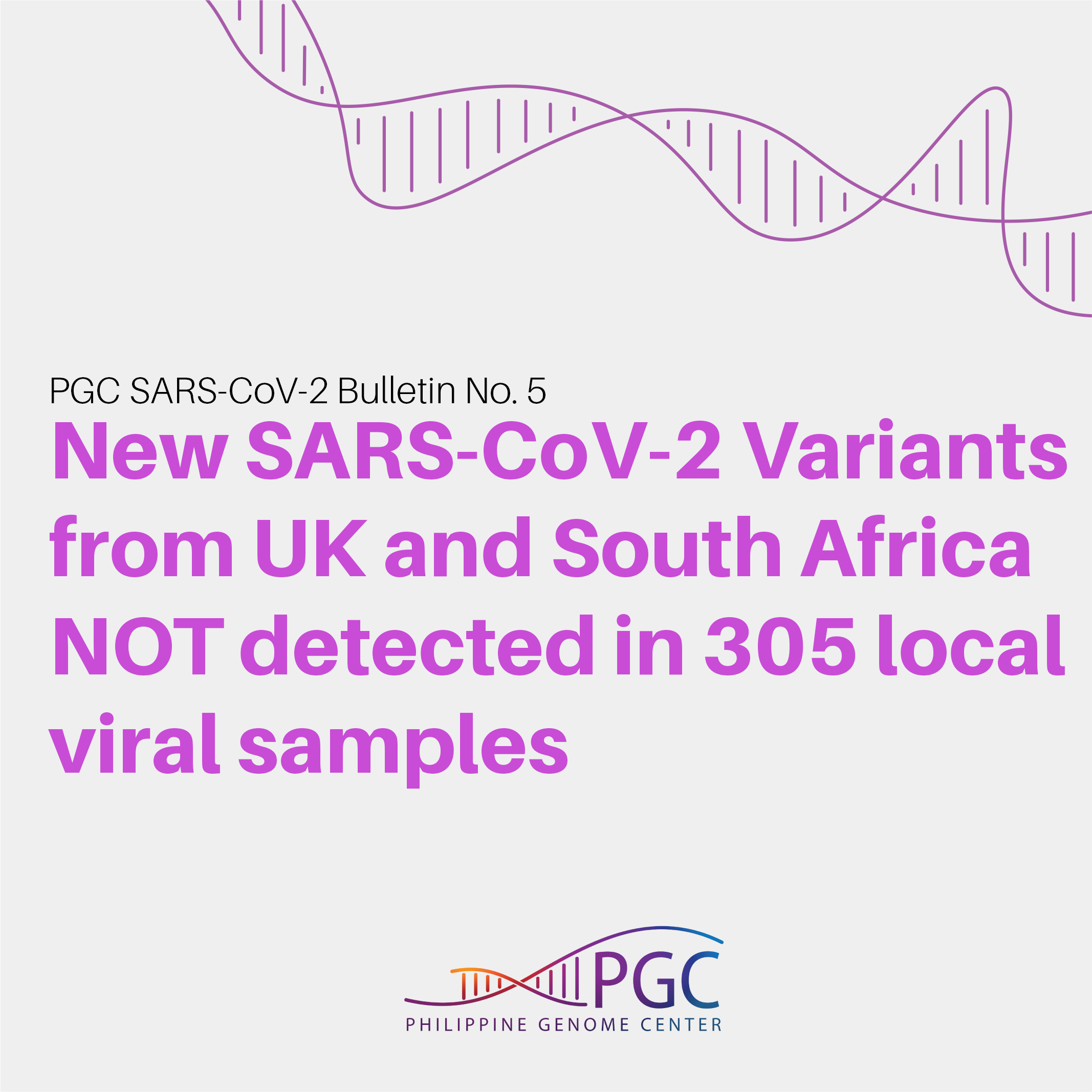
PGC SARS-CoV-2 Bulletin No. 5: New Variants from UK and South Africa NOT detected in 305 local viral samples
Recently, new SARS-CoV-2 variants were detected in the United Kingdom and South Africa with multiple spike protein mutations that may cause substantial changes in certain properties of the virus. These observations spurred biosurveillance efforts in different countries, with some countries outside of the UK and South Africa already reporting the presence of these new variants within their territories. The data presented in this report is part of our own continuing biosurveillance efforts to track the entry of these new variants in the country, as well as other viral mutations that may be of concern locally.
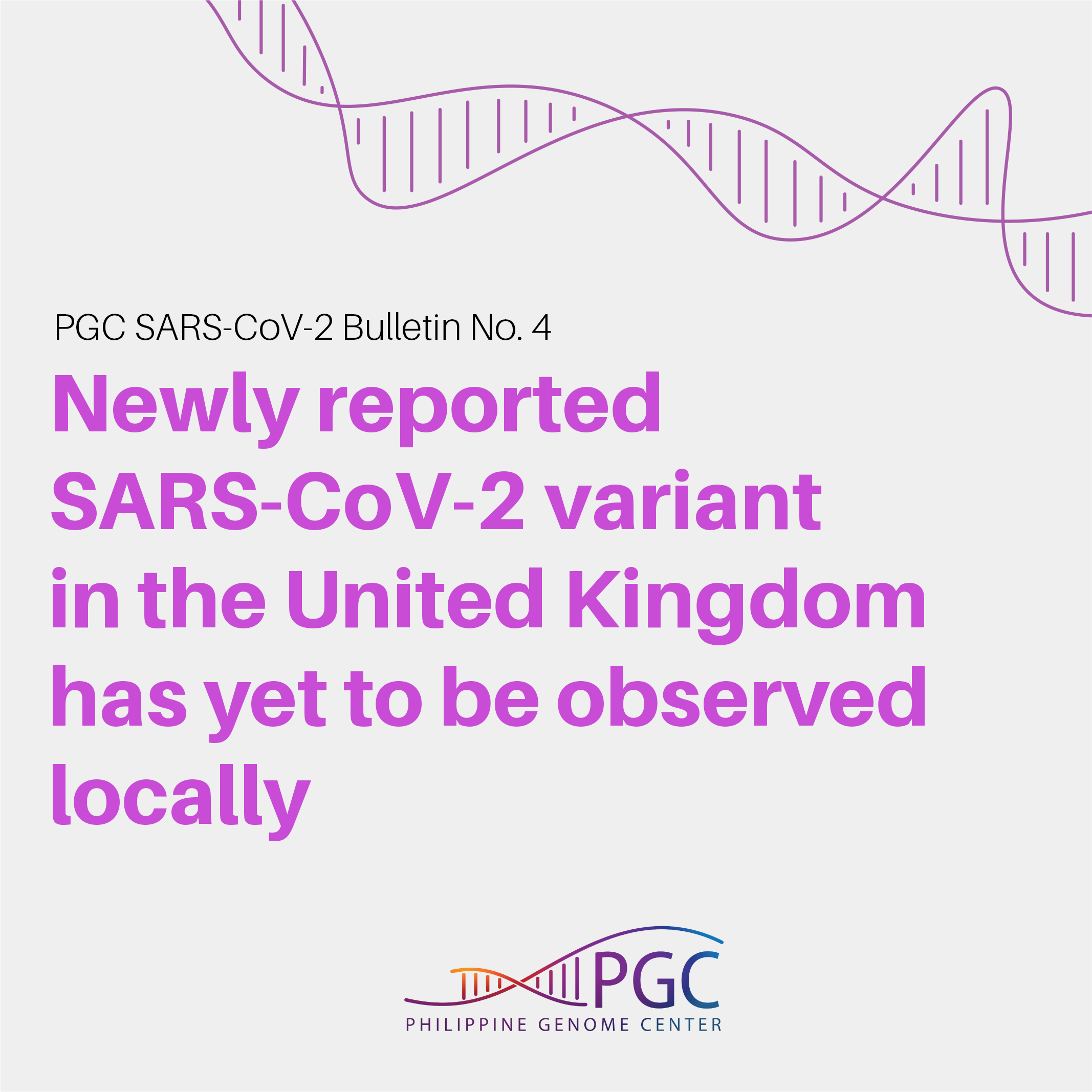
PGC SARS-CoV-2 Bulletin No. 4: Newly reported variant in the United Kingdom has yet to be observed locally
In a report posted at the Global Initiative for Sharing All Influenza Data (GISAID) website, the UK variant is said to harbor multiple spike protein mutations within a single sample, including a combination of the following: H69del, V70del(69), Y145del(143), N501Y, A570D, D614G, P681H(674), T716I, S982A, and D1118H (GISAID, 2020). While the discovery of this new UK variant appears to be concerning, the report cautions that the detailed effects of these mutations remain to be fully determined.

OnePGC: Luzon, Visayas, and Mindanao Virtual Conference 12.10.2020 #PGCParaSaBayan
Philippine Genome Center’s virtual conference on December 10, 2020. More information about this event: https://bit.ly/Program_1PGC2020 OnePGC 2020 phgenome Communications Team
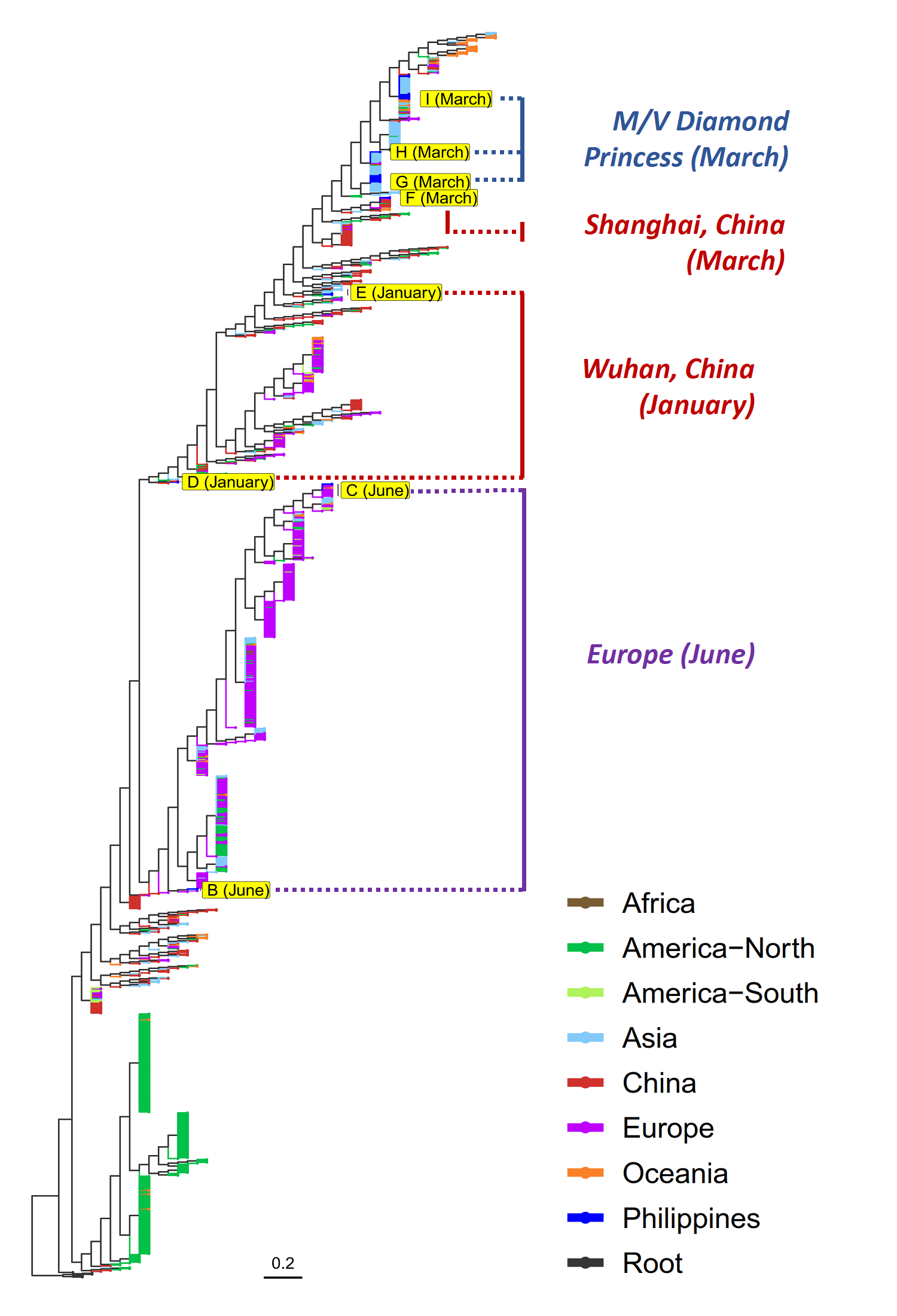
PGC SARS-CoV-2 Bulletin No.2: Three Possible Routes of SARS-CoV-2 infection in the Philippines
Majority of the Philippine submissions (18 of 23) were collected in the month of March, wherein except for one sample which clustered with isolates from Shanghai, China, all others were observed to group into clades linked to the outbreak in the cruise ship, M/V Diamond Princess, moored in Yokohama, Japan in early February 2020. Later that month, passengers and crew members of this cruise ship representing various nationalities including Filipinos, Indians, and Australians were repatriated to their home countries.
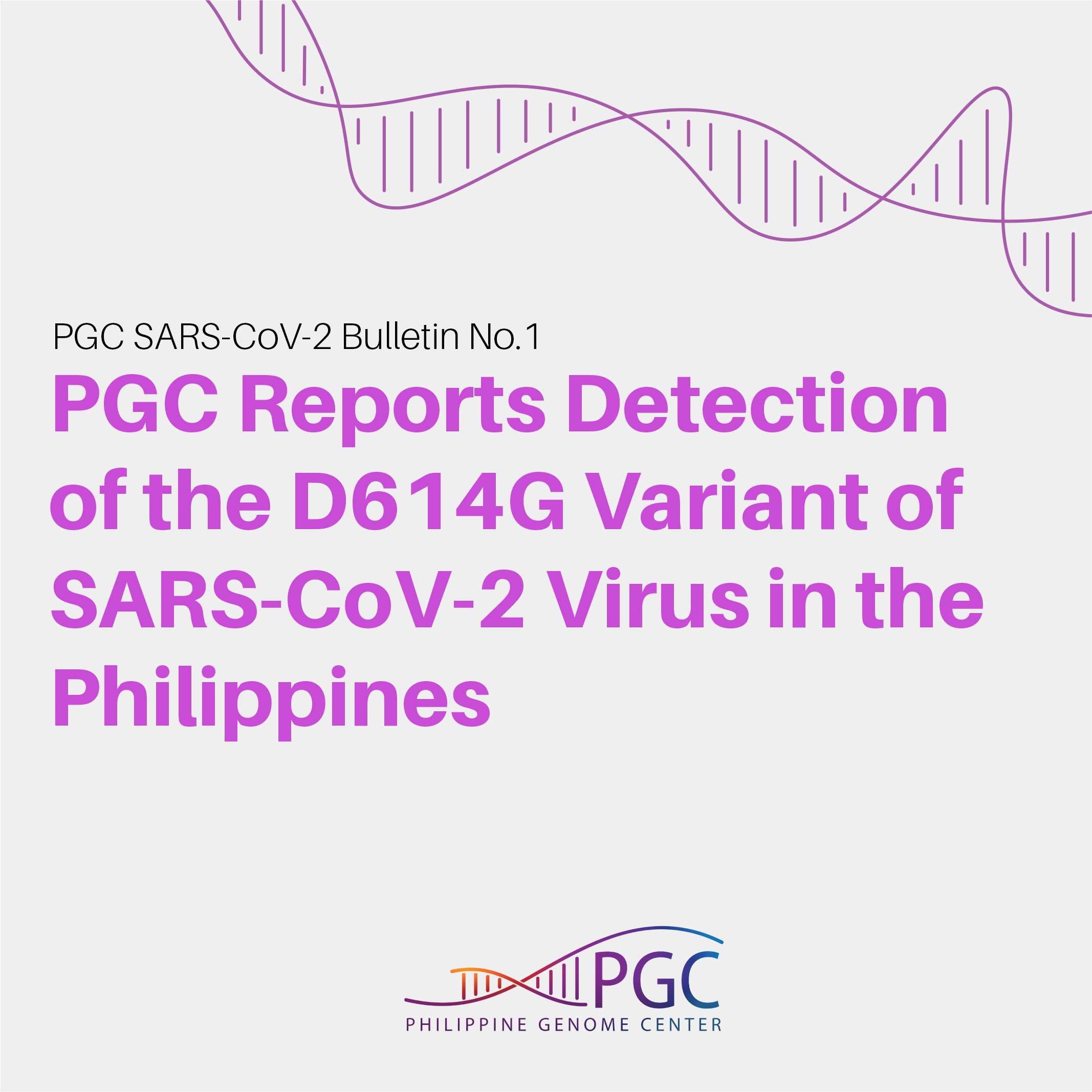
PGC SARS-CoV-2 Bulletin No.1: Philippine Genome Center Reports Detection of the D614G Variant of SARS-CoV-2 Virus in the Philippines
COVID-19 or the Coronavirus Disease 2019 is caused by SARS-CoV-2 virus, the genome of which is a single-stranded positive sense RNA that is about 30,000 bases long. It contains 11 genes and several regions have been known to be immunogenic, including different parts of the Spike (S) protein, the Nucleocapsid (N) protein, as well as the Membrane (M) and Envelope (E) proteins, which have therefore been targeted for vaccine development.

DNA Sequencing Core Facility resumes its services on July 1, 2020
Walk-ins will not be accommodated. Please email the lab and arrange drop-off appointment within the provided schedule and wait for confirmation prior bringing your samples to PGC.
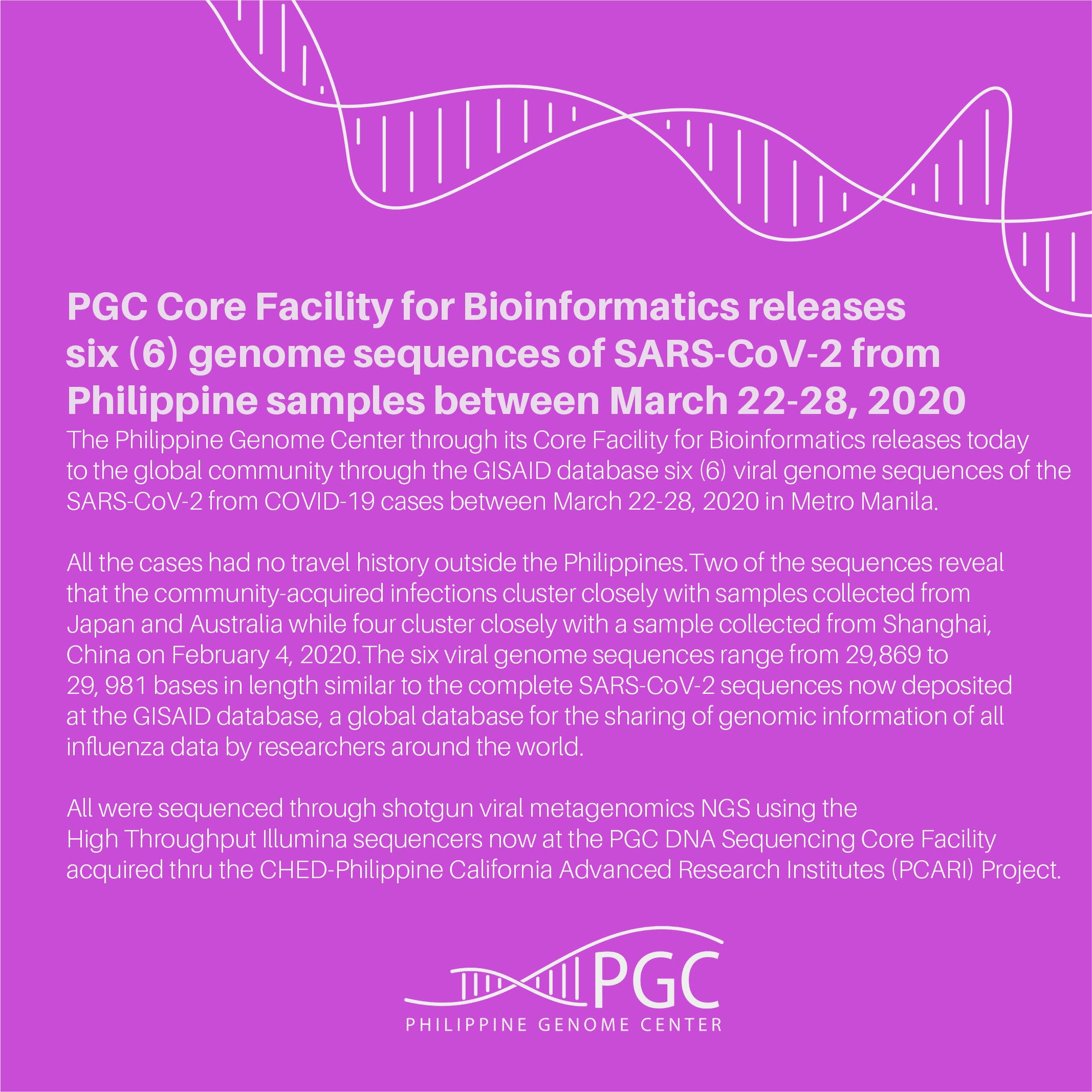
PGC Core Facility for Bioinformatics releases six (6) genome sequences of SARS-CoV-2 from Philippine samples between March 22-28, 2020
The Philippine Genome Center (PGC) thru its Core Facility for Bioinformatics (CFB) releases today to the global community through the GISAID database six (6) genomes of the SARS-CoV-2 sequences from Philippine samples taken in Metro Manila between 26 to 28 March 2020.
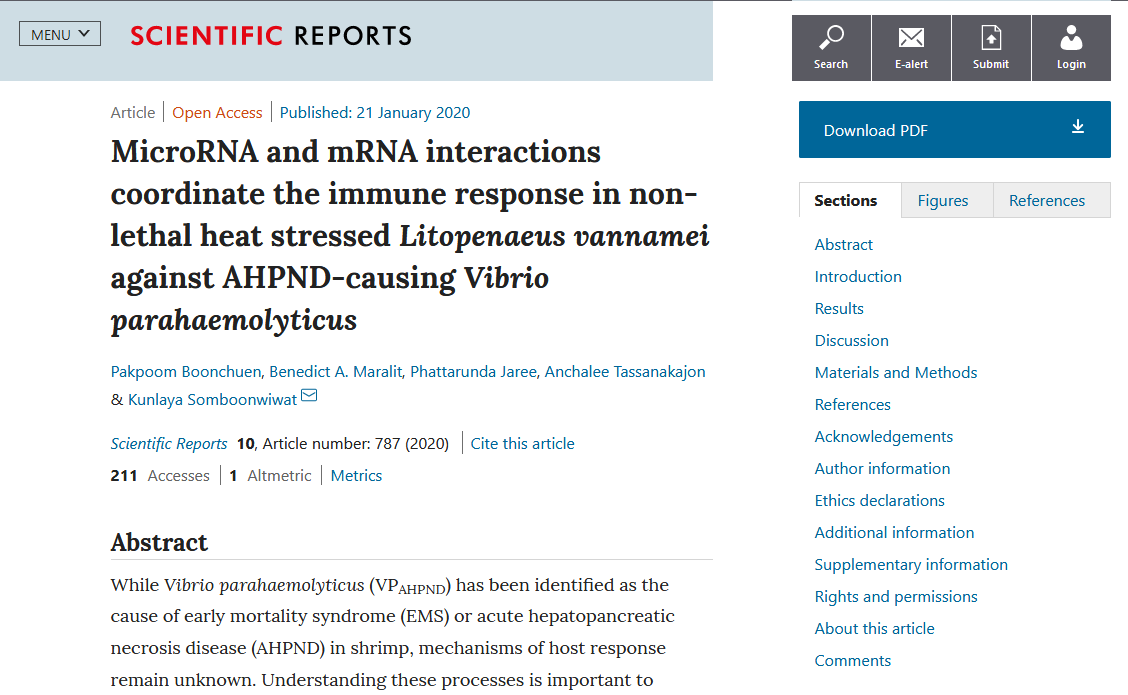
MicroRNA and mRNA interactions coordinate the immune response in non-lethal heat stressed Litopenaeus vannamei against AHPND-causing Vibrio parahaemolyticus
During its first outbreak, the devastating effect of early mortality syndrome (EMS) on the global shrimp industry was primarily caused by the lack of information regarding the disease and its causative agent.

Draft Genome Sequence of Multidrug-Resistant Vibrio parahaemolyticus Strain PH698, Infecting Penaeid Shrimp in the Philippines
The emergence of multidrug-resistant bacterial strains in diverse settings has been reported globally. In the Philippine shrimp aquaculture industry, antibiotics are used for the treatment of bacterial diseases during the production cycle. We report the draft genome of Vibrio parahaemolyticus PH698, a multidrug-resistant strain isolated from a Philippine shrimp farm.

